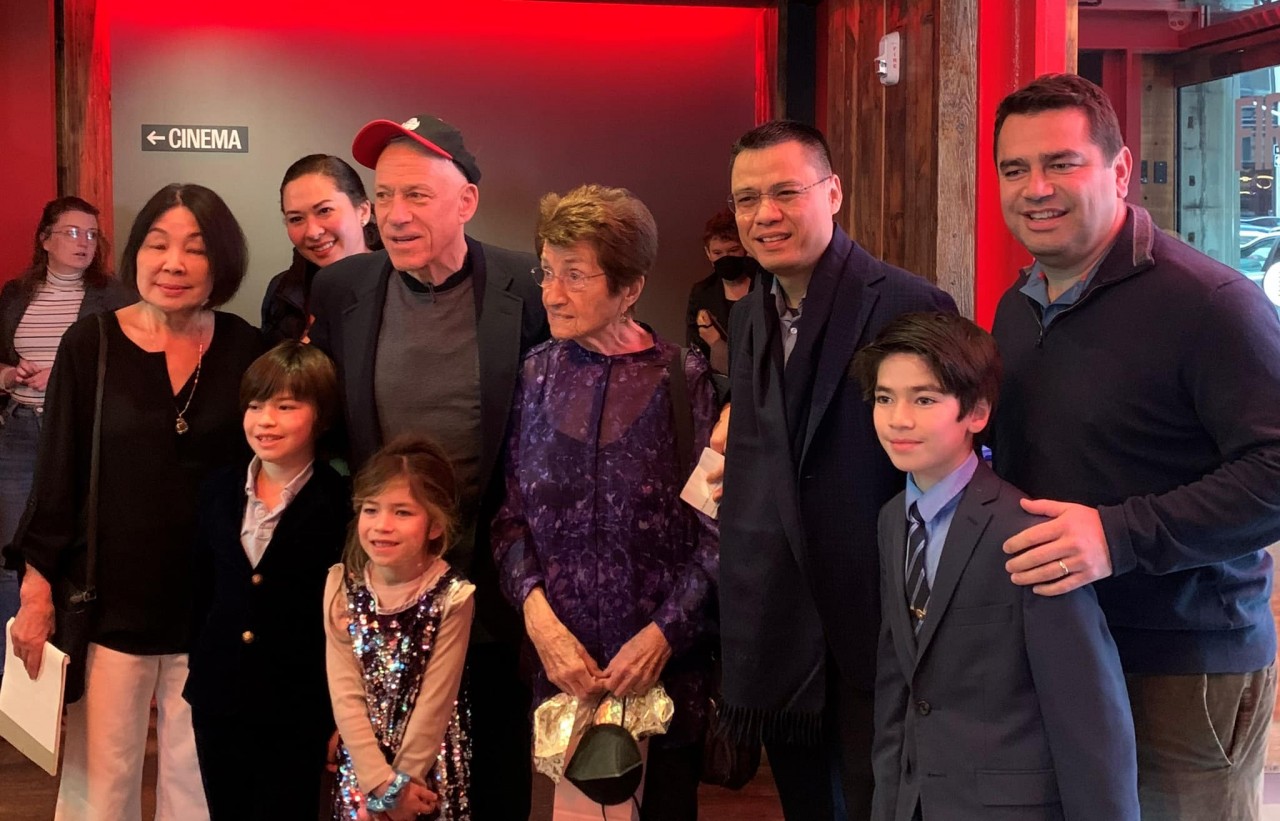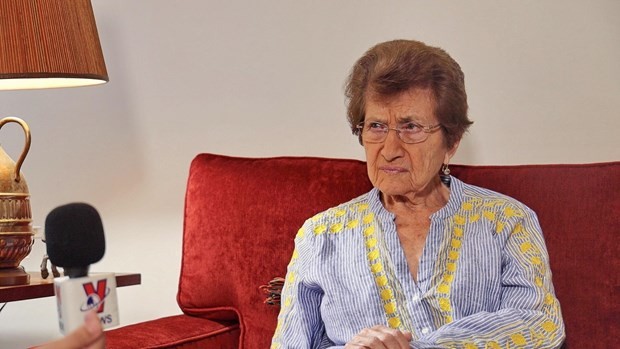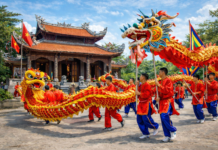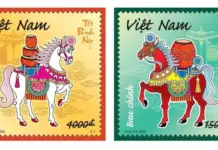 |
| Vietnamese Ambassador to the UN Dang Hoang Giang (third from right), peace activist Cora Weiss (in purple dress) and delegates at the screening. Photo: TG&VN |
A documentary titled “Picking up the Pieces” featuring Vietnam’s post-war reconstruction efforts has recently premiered in New York, the United States, VOV reported Tuesday.
The screening of the film made by the Downtown Community Television Center (DCTV) in 1978 coincided with the 50th anniversary of the signing of the Paris Peace Accords and aimed to honour Cora Weiss, former chairwoman of the Board of Directors of DCTV. She was a famous peace activist, a close and long-time friend of Vietnam who participated in the anti-Vietnam war movement in the 1960s.
Attending the premiere were Vietnamese Ambassador to the UN Dang Hoang Giang, many ambassadors, heads of delegations from other countries, the UN Secretariat and many American friends.
Jon Alpert and Keiko Tsuno made headlines with a 1977 journalistic coup when they became the first American television crew allowed back into Vietnam after the US withdrawal and were given unprecedented access to the ruined countryside and its people. The resulting “up-close” study of Vietnam’s grim post war reality relies on the voices of the common people to tell their stories.
Cora, who made this film possible through her global diplomacy, played a crucial role in getting Americans to be eyewitness reporters during the American War in Vietnam and was an escort for three prisoners released as a peace gesture from Vietnam.
The film has helped international friends gain greater insights into the devastating consequences of the conflict in Vietnam. It also reflects the tremendous efforts made by the Vietnamese State and its people in overcoming the numerous difficulties they faced, as well as showing their spirit of solidarity, optimism, and faith to reconstruct the country.
At the event, ambassadors and head of delegations to the UN assessed that the film had also helped the international community learn more about the war consequences, and conflicts, thereby spreading the message calling for an end to war and striving for peace and development.
On the sidelines of the screening, Vietnamese Ambassador to the UN Dang Hoang Giang highlighted the contributions made by the film crew, Weiss, and other American friends who made practical and effective actions.
The diplomat particularly thanked those who lobbied the public to voice opposition to the war in Vietnam in the past, and support the enhancement of mutual understanding and friendship between the two peoples at present.
Cora Weiss, born in 1934, has been well-known as a peace activist since the early 1960s and was a leader of Women Strike for Peace. She has won many prizes and been nominated for the Nobel Peace Prize for several times.
In 1968, she established the Committee of Liaison with Families of Servicemen Detained in North Vietnam (COLIAFAM), a charity organisation helping resolve one of the conditions for ending the US involvement in Vietnam. This committee operated for about four years, until the Paris Peace Accords were inked.
After 1975, when the South was liberated and Vietnam reunified, she has continued working to assist the country in many aspects for the Vietnamese Delegation to the UN in New York.
 |
| Cora Weiss has a lifetime of activism, and groundbreaking achievements, including co-drafting UN Security Council Resolution 1325, Women Peace and Security, which calls for the participation of women at all levels of government and the prevention of violent conflict. Photo: VNA |
The Paris Agreement on Ending the War and Restoring Peace in Vietnam, signed 50 years ago, came as a result of stressful and protracted negotiations and held extreme importance, Weiss told the Vietnam News Agency in a January interview.
According to her, the Paris Peace Accords, signed on January 27, 1973, helps give the US administration a way out from a 10-year illegitimate and unjust war in which millions of Vietnamese and tens of thousands of American soldiers were killed or exposed to Agent Orange.
The agreement helped put an end to this and paved the way for ending the war and restoring peace in Vietnam, she noted.
During the years of negotiations, the movement rose to the strongest-ever level. From 1969, thousands took to the streets in Washington D.C. to oppose the war. The number of participants in anti-war campaigns continually increased, and protests against the US involvement in the war kept spreading to many other cities, including New York, Weiss recounted.
Her husband, Peter Weiss, who was also a famous activist in the movement, held that the signing of the Paris Peace Accords was an inevitable result for the US administration then since that war caused damage to the US in both political and economic terms.
He also emphasised the historical significance of this agreement to all the parties concerned.








